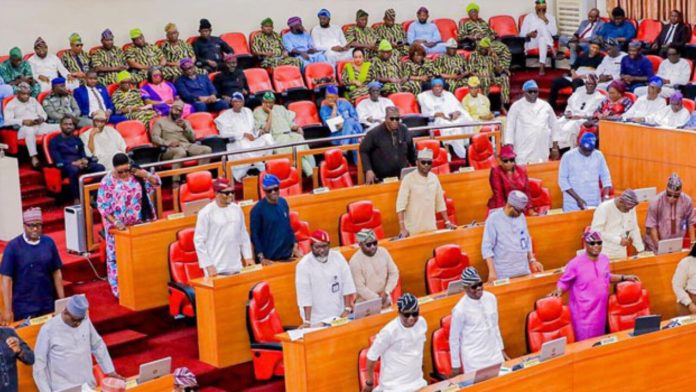The Lagos lawmakers property budget has come under scrutiny after documents from the second quarter of 2025 revealed that the 40 Lagos State House of Assembly members are set to spend ₦6.2 billion on 40 properties in Lagos or Abuja. According to the report, ₦1 billion — about 16.1% of the allocation — had already been spent by mid-2025.
This provision means each legislator will receive a house worth roughly ₦155 million. Analysts say the Lagos lawmakers property budget raises concerns about governance and accountability, especially as the state grapples with pressing social and infrastructure needs.
The 2024 budget performance had already raised eyebrows when the allocation for 40 properties was increased from ₦1.22 billion to ₦6.2 billion, though only ₦126 million was spent. In contrast, 2023 saw ₦1.131 billion disbursed for the same purpose, representing a 92.7% performance rate. The budget did not clarify whether those 2023 allocations were for outgoing members of the ninth assembly or carried over to the newly inaugurated tenth assembly.
Critics point to constitutional limits. Section 124(5) of the 1999 Constitution allows state assemblies to legislate pensions for governors and their deputies only, not lawmakers. This has fueled wider debate on whether the Lagos lawmakers property budget aligns with constitutional provisions or amounts to an overreach.
The issue mirrors broader controversies around pensions and entitlements for political office holders. In 2019, former Bayelsa Governor Seriake Dickson rejected a “life pension” bill for lawmakers, citing its unconstitutional scope. More recently, states like Abia and Benue have repealed similar pension laws for ex-governors, showing momentum for fiscal discipline.
In Lagos, Governor Babajide Sanwo-Olu promised to repeal the Public Office Holder (Payment of Pension) Law. However, lawmakers instead opted to slash benefits by 50%. This decision highlights the delicate balance between public accountability and political privilege.
As questions mount over the Lagos lawmakers property budget, stakeholders argue that such funds should be redirected toward addressing Lagos’ housing crisis and infrastructure challenges.
For further insight into housing issues, read PMW’s feature on Nigeria’s housing deficit and explore external reporting from Transparency International on budget accountability.



